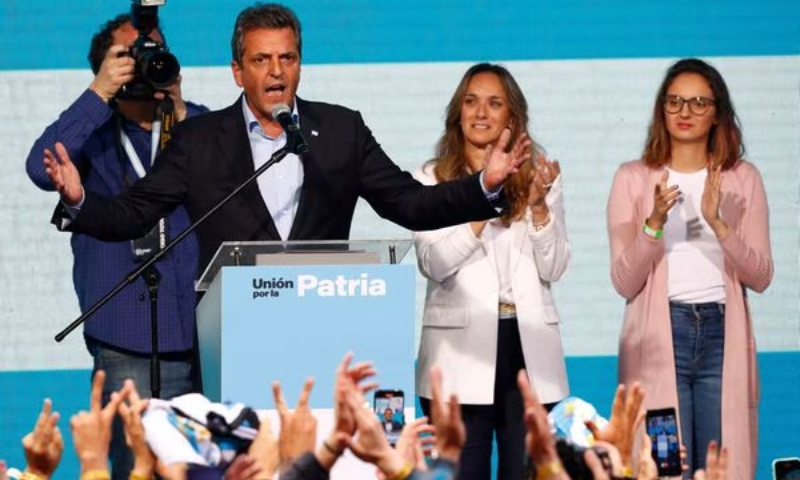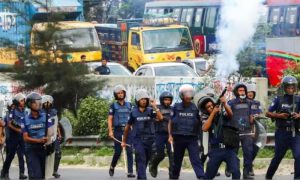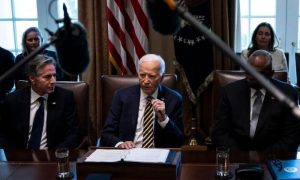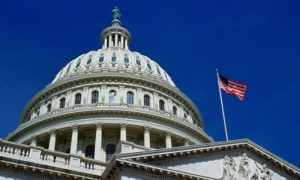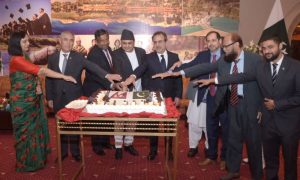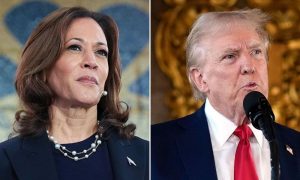BUENOS AIRES, Argentina: In an unexpected turn of events, Economy Minister Sergio Massa claimed victory in the first round of Argentina’s presidential election, securing the top position.
This outcome signifies voters’ reluctance to hand over the presidency to his chief rival, right-wing populist Javier Milei, known for his promise to dramatically reduce the size of the state.
Massa’s win comes despite a backdrop of soaring inflation, which has reached triple digits under his leadership, eroding the purchasing power of salaries and exacerbating poverty. With 98.3% of the votes counted, Massa secured 36.7% of the vote, while Milei garnered 30%, setting the stage for a November runoff. This outcome contradicts pre-election polls that gave Milei a slight lead and positioned Massa in second place. Patricia Bullrich, former Security Minister and a key figure in the main center-right opposition coalition, came in third with 23.8%.
Massa’s victory can be attributed to his skillful focus on highlighting how Milei’s proposals, which aimed at significant reductions in government ministries and deep spending cuts, would impact the lives of ordinary Argentines. This messaging effectively instilled fear and concerns among voters.
One critical factor in the election result was the lower abstention rate compared to the primary elections held in August. Approximately 78% of eligible voters cast their ballots on election day, a notable increase from the primaries where Milei emerged as a surprise victor.
Milei, a self-proclaimed anarcho-capitalist and admirer of former U.S. President Donald Trump, advocated for radical changes, including the elimination of the Central Bank, the replacement of the local currency with the U.S. dollar, and a purge of the political establishment. While his proposals rallied a significant following, they also deterred some voters who turned to Massa to prevent what they perceived as a risky path for democracy.
Read Also: Argentina Goes for Presidential Poll Amid Economic Woes
Massa’s victory in the first round marks a significant political shift, as it indicates the people’s choice to continue with a center-left administration rather than a sharp turn to the right. The runoff election in November will determine Argentina’s future political course.
Despite criticism of his administration’s handling of the economy, Massa’s ability to unite support from the left played a pivotal role in his first-round success. In his victory speech, Massa extended an olive branch, expressing his intent to form a government of national unity, transcending political affiliations.
Milei’s campaign, characterized by its anti-establishment fervor, energized a significant segment of the population, but it also raised concerns among many Argentines. His promise to dismantle key government institutions and his positions on issues like sex education, feminism, abortion, and climate change, proved divisive.
As the nation prepares for the runoff, the political landscape remains uncertain, with both candidates vying for the presidency. Milei’s surprising political ascent and his party’s parliamentary gains have already left a lasting mark on Argentina’s political landscape. The upcoming weeks will reveal whether Massa or Milei will steer the nation’s future direction.









